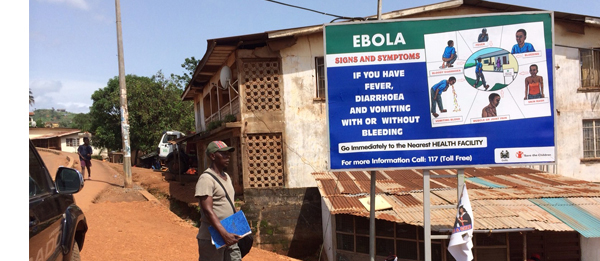With an estimated 729 deaths since the outbreak of the Ebola virus in West Africa, the health epidemic couldn’t have come at a worse time with Africa leaders set to travel to meet in Washington.
The dilemma before the African Heads of State especially those countries infested with Ebola is whether to go feast in Washington or stay to manage the health crises killing their citizens?
Obviously the prudent thing to do will be to save the millions of dollars that the Washington trip will cost their countries in addition to the cost of coming to the annual ritual of the UN general assembly next month and use the money to fight Ebola disease.
The US-Africa Summit in Washington as expected will attract the retinue of government officials and others who might have had some contact with Ebola victims. The implication is that the contagious and incurable Ebola virus will continue to spread across international boundaries.
This is why it heartwarming to learn that the Nigeria Civil Aviation Authority (NCAA) has started “temperature screening” of passengers at key international airports across Nigeria. Between July 24 and 27 ─ a spate of four days ─ 57 deaths were recorded in Guinea, Liberia, Nigeria and Sierra Leone, according to the World Health Organization (WHO).
Reuters quoted NCAA spokesman Sam Adurogboye as saying that a compulsory blood test would follow if a passenger’s temperature gave cause for concern. International airlines association IATA said WHO was not recommending any travel restrictions or border closures due to the outbreak, and says there would be a “low risk” to other passengers if an Ebola patient flew.
One reason why Ebola is so terrifying is that there’s no cure, and the fatality rate is roughly 60 to 90 percent. Those who catch it and don’t get treated early will very likely die. Since 2008 past outbreaks of Ebola have killed a few dozen people at most.
So, what makes this one so much worse?
Past outbreaks of the virus have been linked to people hunting gorillas and chimps for food, or eating dead apes they find in the jungle. There are no gorillas in West Africa, so specialists think this outbreak is linked to fruit bats. In 2007 in Uganda, an Ebola outbreak was traced to “a couple of kidsplaying with fruit bats in a cave. They came home with two dead fruit bats and the mothers cooked them,” said Dr. Estrella Lasry, a tropical medicine advisor to Doctors Without Borders.
Researchers still don’t know the exact cause of this particular outbreak, but it might have to do with the local practice of eating bats for food, according to Jonathan Epstein, an epidemiologist at EcoHealth Alliance. “It’s unclear whether it occurred due to butchering a bat, exposure to bat bodily fluids, or eating some food or fruit that was contaminated by saliva, urine, or feces from the bat, which may contain Ebola virus,” he said. Pig farms in Africa also often attract bats, which also may have been a cause.
Once the infected person begins to show symptoms—flu-like aches, nausea, and vomiting—local customs continue to play a big role. There aren’t enough doctors or supplies available to treat all the Ebola patients in the area, but even if there were, many locals are suspicious of Western medicine.
“In this outbreak, there’s been intense mistrust of Western health care workers,” Epstein said. “You’re battling a lot of perceptions and convictions. There are local remedies that people have trusted. They will turn to a local witch doctor in the village.”
If the person dies, tradition holds that the body should be washed by the family, which inadvertently creates new opportunities for exposure. The family member might then prepare a meal for the rest of the funeral party, further increasing the odds that infection will spread.
When the infected person dies in a medical tent, meanwhile, the body is usually disinfected and buried or burned, not returned to the family. This causes enormous agony for the families—“it enhances grief if people aren’t allowed to perform the rituals that are important to them,” Epstein said. “So if someone dies, they’ll secret the body away.”
“We know there’s mad cow disease, but does that stop you from eating hamburger?”
Then there’s the fact that because Ebola is so deadly, those who enter a Western-established medical tent might never come back. That heightens fears among locals that Western doctors might be worsening the outbreak. People start to hide their sick relatives, who bleed out at home and infect others. One Sierra Leone woman fled a hospital after testing positive for the Ebola virus. Other communities are preventing doctors from entering entirely.
“So why don’t people avoid the bats in general?” I asked.
“Eating wildlife is a generational practice,” Epstein said. “It’s something people have done forever. There isn’t necessarily an association with the animals they’re hunting or killing and getting sick. Even if they’re told by local doctors that bush meat is making them sick, there’s a strong belief that the illness is due to black magic or spiritual power.”
It’s tempting to blame local customs, but less so when you realize that Ebola is an extremely rare virus, and food options in the bush can be extremely scarce. One might eat five or 10 or 100 bats and be fine, but the 101st might be lethal.
Think of it this way: “We know there’s mad cow disease, but does that stop you from eating hamburger?” said Sarah Olson, a wildlife epidemiologist at the Wildlife Conservation Society.
“They’ve probably never seen Ebola, and they’re balancing that against a need to feed their family,” she added. “The risk of contracting it is very low, but when you multiply that across many interactions, occasionally it’s going to happen.”
With additional reports from The Atlantic







